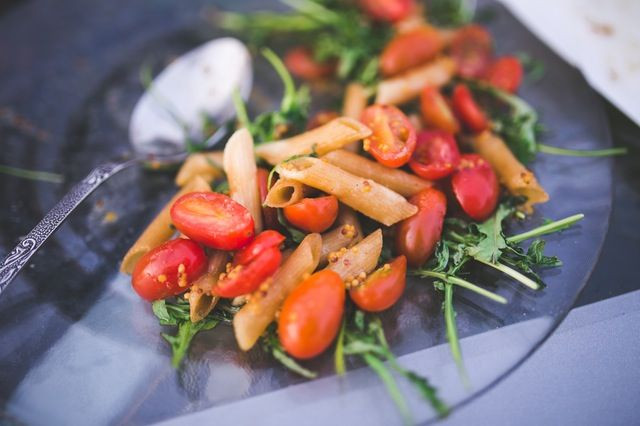Diet Tips For Clean Eating: How 'Good Fats' Make Healthy Smoothies, Boost Brain Health

We go to our local vitamin shop, stock up on supplements we've prescribed to ourselves, and cap it off by sipping on some coconut oil. We convince ourselves our bodies are being fed, and we feel healthier, but we can't actually get all our nutrients from a bottle. Supplements are depicted as an easy alternative to healthy foods, but if we don't understand how to engage with our food, we'll never learn to eat "clean."
In Big Think's video, “Diet Tips from a Psychiatrist: Reconsider Supplements and Eat Real Food,” nutritional psychiatrist Drew Ramsey explains that a thoughtful and nutrient-dense diet is much more effective than a multivitamin for several reasons; for example, in a supplement bottle, there is only one form of vitamin E, whereas in the natural world there are eight varieties. These nutrient molecules are essential because they travel from the end of our fork into our DNA, and change how our genes are expressed, and they're responsible for turning on genes that keep us healthy.
Supplements Vs. Whole Foods
Most of the foods we consume are created for the supermarket shelf, and not for our health, according to Ramsey. Many people see supplements as an insurance policy for not eating well or not exercising enough, but in reality, when we don't eat well we get sick. However, if people have a deficiency, like pernicious anemia where the person's body prohibits the absorption of B12, then taking a B12 supplement is vital.
We can boost our brain function and our overall well-being with modifying our grocery list. Ramsey explains there's a big difference between starting the day by taking a set of pills, and seeking out top food sources. There's differences in terms of absorption; there are some molecules that just aren't in multivitamins.
Understanding Food
The Healthy Smoothie
Food trends like juicing or smoothies are considered healthy, but this is contingent on their ingredients. Typically, smoothies tend to contain a lot of tropical fruits, and some low-fat milk or yogurt — but this is really all simple sugars. Instead, a robust meal would be a smoothie that contains seeds or nuts to increase its fat and protein content.
The “Good Fat”
The word "fat" often has a negative connotation — something far from healthy. However, certain fat can beneficial, especially since our brain is mainly made of fats, which is important to brain function. When we eat fats and proteins and complex carbohydrates, our bodies stay fuller longer as we consume fewer calories, and move towards an optimal weight.
Ramsey likes to add a whole food, whether it's kale, blueberries, some kaffir, or some almonds, for example, and blend it up for a lot of nutrition in a small dose. Lots of nuts and seeds and some healthy fats go down easy and in small doses.
Over the years, kale has become a popular superfood due to its nutrient density. It’s also versatile, meaning we can use it in a lot of foods like a smoothie, soup, or in our salad.
Diet & Nutrition
Many of us know what we should be eating, but our ability to put our knowledge into practice will determine if we eat clean.
Ramsey's rule of thumb: look at our plate to make sure everything has one ingredient. For example, when we look at wild salmon with a garlic scape pesto, we are able to recognize the nutrients on our plate compared to reading ingredients on the back of a package.
Once we develop a further understanding of our food, we can start to eat our way to a better physical, mental, and emotional state.



























